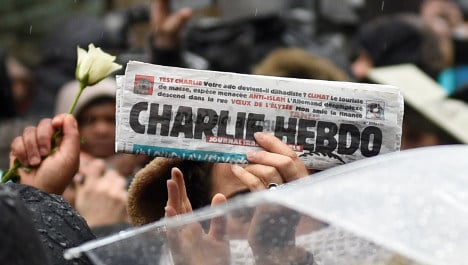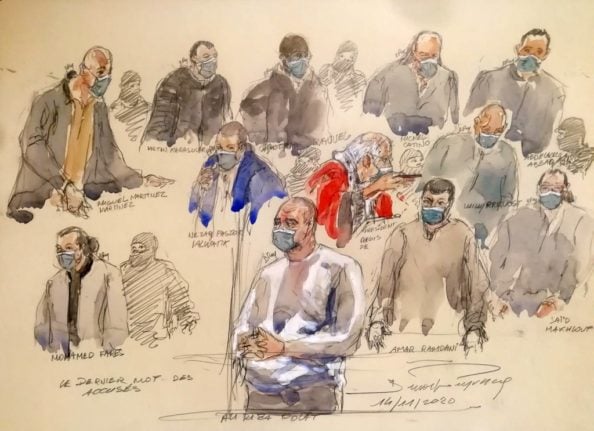The student, 17-year-old Louis, published a special edition of the paper in January after Islamists went on a killing spree on the streets of Paris that left 17 people dead and saw the capital gripped with fear for three days.
Two of them stormed the Paris offices of Charlie Hebdo killing 12 people, including journalists and police officers, and sparking a global outpouring in support of free speech.
The school paper edition — titled “Je Suis Charlie” (“I am Charlie”) after the slogan that went viral following the attack — included poems, opinion pieces and drawings.
It did not include any of the caricatures of the Prophet Mohammed published by Charlie Hebdo that had angered the Islamists.
“It was a tribute to the 17 victims without discrimination — for Jews, journalists, police officers,” Louis, whose surname was not given, told AFP.
Police have opened an inquiry into the death threats against him, including seven letters in total, two of which contained bullets.
The last one at the beginning of May “seemed like an ultimatum”, Louis said.
On Thursday, students and teachers gathered at midday at the Marcellin-Berthelot high school on the outskirts of Paris to show their support for Louis, whose nerves have been shattered by the threats.
The 17-year-old's mother said she was deeply worried about the mental state of her son, who only sleeps a few hours a night, “won't go out in the street alone” and now carried two tear gas cannisters on him at all times.
“This has been going on for months,” complained history teacher Pascale Morel. “We didn't say anything at first while the (police) inquiry was being carried out, but nothing concrete has been done.”
A judicial source told AFP the affair was being taken very seriously and a biological analysis of the letters was being carried out.
Analysis
The death threats sent to the school pupil are just the latest example of how the country and especially its youth is not exactly united post-terror attacks.
While four million people may have marched in unity following the terrorist shootings of Charlie Hebdo journalists, police officers and four Jews, the “Je Suis Charlie” slogan has actually caused division, with many young people unable to associate themselves with it.
Many young people of Muslim backgrounds resented the fact the magazine had published provocative images of Mohammed and did so again in the “survivors” edition following the massacre of most of the magazine's team.
Even in the days after the attacks schools reported that pupils were refusing to respect a minute's silence to remember the victims and there were also reports of young pupils being attacked and threatened for showing support for the “Je Suis Charlie” slogan.
Almost five months on from the attacks and the divisions are still evident.



 Please whitelist us to continue reading.
Please whitelist us to continue reading.
Member comments